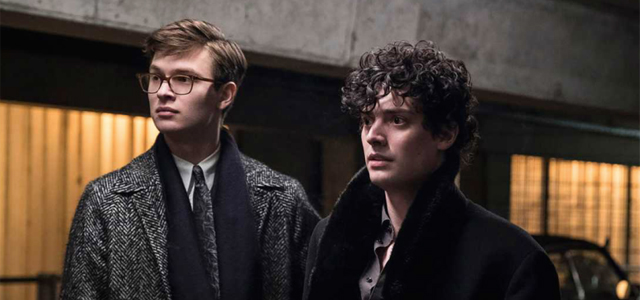Review: The Goldfinch
Starring: Ansel Elgort, Oakes Fegley, Nicole Kidman, Jeffrey Wright
The Goldfinch, Donna Tartt’s sprawling, brilliant bildungsroman, is probably better suited to a miniseries than a film. It’s long, slow, and a bit stuffy in places, the sort of story that benefits from slowly unfurling over a leisurely week or two of reading. It’s just not a particularly cinematic tale, unlike her earlier, still unadapted masterpiece, The Secret History. But it’s also a Pulitizer Prize winner, and thus an obvious choice for Oscar bait.
Unfortunately, this adaptation from John Crowley (Brooklyn, Boy A) is not going to win, or even get nominated, for any awards. In fact, it’s not going to go over well with a lot of people: a good adaptation should be able to stand separately from the work it is based on, and The Goldfinch doesn’t, really. But if you – like me – read the book when it came out and remember it well enough to fill in some of the movie’s glaring blanks, the film version of The Goldfinch has more going for it than its already fast-spreading reputation suggests.
The story follows Theodore Decker (Oakes Fegley as a child, Ansel Elgort as an adult), a boy who loses his mother in an art gallery explosion at the age of 13. In the aftermath, Theodore leaves the gallery having stolen (for, again, reasons better explained in the book) a painting – the eponymous The Goldfinch, a real painting by 17th century artist Carel Fabritius. The film follows Theo into adulthood, through different families and locations and major life moments, and all the while this stolen painting hangs over the character and the narrative.
Many strange decisions have been made with this adaptation, but by far the most damaging is the way it’s presented as a non-linear narrative, cutting back and forth between different moments in Theodore’s life throughout. The obvious thought behind this is that moments in Theodore’s adult life can be directly traced back to his childhood, but drawing those lines so explicitly is unnecessary – that’s what the entire movie is about, after all. If you haven’t read the book you’ll likely be confused, as this asks you to fill in gaps and try to make sense of what should be a straightforward narrative. To give one baffling example, the explosion and art theft itself is shifted into the middle of the film; it serves no storytelling purpose beyond making the film more confusing.
The performances are all over the place, too. The resemblance between Ansel Elgort and Oakes Fegley is uncanny, and while the younger Theodore is given more to do both are strong, although adult Theodore is underserved by some script omissions. Nicole Kidman suffers from some particularly stuffy, uncinematic dialogue as the mother of the family that briefly takes Theodore in, but she brings some warmth to the role later in the film. Jeffrey Wright shines as an antique expert and replicator who trains Theodore in his eventual adult profession, whereas Luke Wilson is stunningly miscast as Theodore’s loutish father. I found myself tallying off each good and bad performance in the film as it went, and honestly, it’s about 50-50.
But in all of this, there are moments of beauty and grace. A scene in which Hobie explains to Theodore how to tell the difference between a genuine antique and a reproduction might sound dull, but it’s delivered with such sincerity and appreciation for the tactile examination of each item that I couldn’t help but be thrilled by it. Crowley is excellent at framing shots and shooting environments, and perfectly sells, purely through how he moves the camera and frames action, why the reappearance of Theodore’s dad midway through the film is such a disaster. The Goldfinch might not perfectly capture the book, but it captures plenty of moments from it in a satisfying way – a blissed-out acid trip, a joyful reunion, a hotel room freak-out. The explosion itself, when the movie arbitrarily deems us ready to see it, is a stunning set-piece.
The Goldfinch runs for close to two and a half hours, and for all its problems I was never bored by it. In fact, it could maybe stand to be longer – the final act is speeds through material so fast that it’s practically presented as montage. The Goldfinch is a misguided screenplay of a good book, but it’s beautifully directed and often well-acted, and there are moments where you could be mistaken into thinking you’re watching something brilliant. It makes more sense as a companion piece for the book’s fans than it is as a film in its own right.
The Goldfinch is in cinemas now.
James O’Connor is a critic and journalist













